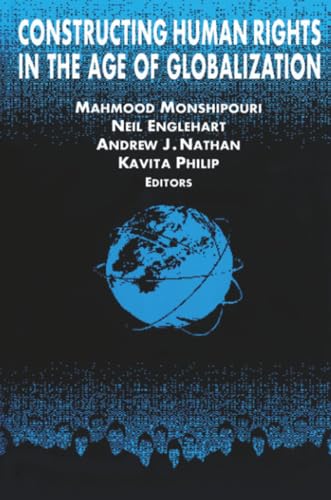Books by Kavita Philip
Tactical Biopolitics: Art, Activism, and Technoscience (Leonardo Book Series)
Author(s): Beatriz da Costa, Kavita Philip
Publication date: 2010-08-13
ISBN: 0262514915, ISBN-13: 9780262514910
Popular culture in this "biological century" seems to feed on proliferating fears, anxieties, and hopes around the life sciences at a time when such basic concepts as scientific truth, race and gender identity, and the human itself are destabilized in the public eye. Tactical Biopolitics suggests that the political challenges at the intersection of life, science, and art are best addressed through a combination of artistic intervention, critical theorizing, and reflective practices. Transcending disciplinary boundaries, contributions to this volume focus on the political significance of recent advances in the biological sciences and explore the possibility of public participation in scientific discourse, drawing on research and practice in art, biology, critical theory, anthropology, and cultural studies. After framing the subject in terms of both biology and art, Tactical Biopolitics discusses such topics as race and genetics (with contributions from leading biologists Richard Lewontin and Richard Levins); feminist bioscience; the politics of scientific expertise; bioart and the public sphere (with an essay by artist Claire Pentecost); activism and public health (with an essay by Treatment Action Group co-founder Mark Harrington); biosecurity after 9/11 (with essays by artists' collective Critical Art Ensemble and anthropologist Paul Rabinow); and human-animal interaction (with a framing essay by cultural theorist Donna Haraway).
ContributorsGaymon Bennett, Larry Carbone, Karen Cardozo, Gary Cass, Beatriz da Costa, Oron Catts, Gabriella Coleman, Critical Art Ensemble, Gwen D'Arcangelis, Troy Duster, Donna Haraway, Mark Harrington, Jens Hauser, Kathy High, Fatimah Jackson, Gwyneth Jones, Jonathan King, Richard Levins, Richard Lewontin, Rachel Mayeri, Sherie McDonald, Claire Pentecost, Kavita Philip, Paul Rabinow, Banu Subramanian, subRosa, Abha Sur, Samir Sur, Jacqueline Stevens, Eugene Thacker, Paul Vanouse, Ionat Zurr
Civilizing Natures: Race, Resources, and Modernity in Colonial South India
Author(s): Kavita Philip
Publication date: 2003-12-01
ISBN: 0813533619, ISBN-13: 9780813533612
Science was a central pillar of colonialism, but the converse holds true as well: colonialism profoundly shaped the character of nineteenth-century science. Civilizing Natures unravels unexpected relationships between science, technology, and administrative systems in colonial India from the 1850s to the 1930s, deepening our perspective on continuing conflicts over race, resources, and empire.
Botanists, anthropologists, and foresters had their most important sources of data—nature and natives—located at colonial sites. In the hilly, forested regions of Madras Presidency, tribal populations were studied by ethnographers, managed by revenue officials, recruited by plantation contractors, and modernized by missionaries. Racial constructions of nature and modernity helped criminalize and domesticate unruly natives. This is a story about the construction of nature in southern India that is deeply local and irreducibly global.
Through detailed case studies, Kavita Philip shows how race and nature are fundamental to understanding colonial modernities. Through its insightful combination of methodologies from both the humanities and the social sciences, Civilizing Natures complicates our understandings of the relationships between science and religion, pre-modern and civilized, environment and society.
�
Constructing Human Rights in the Age of Globalization (International Relations in a Constructed World)
Author(s): Mahmood Monshipouri, Neil Englehart, Andrew J. Nathan, Kavita Philip
Publication date: 2003-04-10
ISBN: 0765611384, ISBN-13: 9780765611383
UC-Irvine : History
- Sharon Block
- Alex Borucki
- Anita Casavantes Bradford
- Vinayak Chaturvedi
- Yong Chen
- Ian Coller
- Touraj Daryaee
- Alice Fahs
- Sarah Farmer
- Qitao Guo
- Douglas Haynes
- Andrew Highsmith
- David Igler
- Adria Imada
- Winston James
- Matthias Lehmann
- Mark LeVine
- Jessica Millward
- Laura J. Mitchell
- Robert G. Moeller
- Susan Morrissey
- Rachel O'Toole
- Allison Perlman
- Kavita Philip
- Ana Elizabeth Rosas
- Vicki Ruiz
- Sharon Salinger
- Patricia Seed
- Heidi Tinsman
- Steven Topik
- Jeffrey Wasserstrom
Most popular books
Link to this page using the following URL: https://www.facultybookshelf.org/author/kavita_philip


